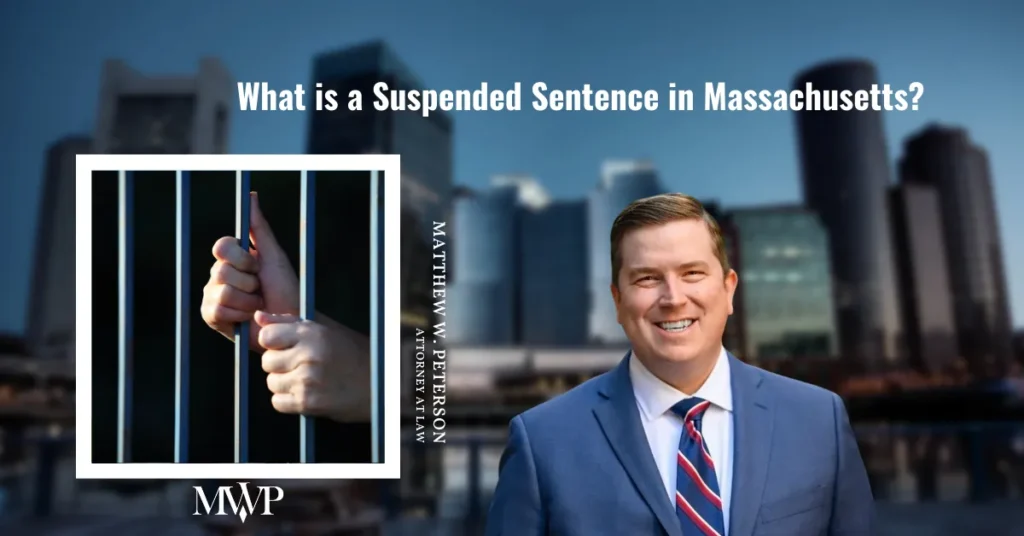Understanding Suspended Sentences in Massachusetts
A suspended sentence in Massachusetts is when a sentence is “hanging over your head” for a period of probation. If you violate probation, a suspended sentence can be imposed.
Example of a Suspended Sentence
For example, let’s say you were sentenced to two years in the House of Corrections and suspended for two years of probation. You do not go to jail, but instead, you are placed on probation for two years. If you complete the probation, you stay out of jail. However, if you violate probation, the judge has two options – either put you back on probation or give you two years in the house of correction.
Differences from Straight Probation
This is unlike “straight” probation, when the judge can choose whatever sentence they want to impose upon a violation of probation.
Advantages and Disadvantages
A suspended sentence in Massachusetts has advantages and disadvantages. On the one hand, you know the potential sentence if you violate probation up front. On the other hand, if you violate probation, the judge has no choice but to impose the suspended sentence.
Caution Regarding Plea Offers
Before accepting any plea, you should also be careful to avoid overbearing probation conditions. If you cannot abide by the probation conditions, you should not accept the plea offer.
Importance of Legal Counsel
If you’re considering taking a suspended sentence, it’s critical to contact an experienced criminal defense attorney. The Law Office of Matthew W. Peterson is available for an initial consultation by phone or text at (617) 295-7500. Our office is in Boston, but we practice criminal defense throughout Massachusetts.
Frequently Asked Questions (FAQs) About Suspended Sentences in Massachusetts
1. What is the difference between a suspended sentence and straight probation?
A suspended sentence involves a specific sentence that is not immediately enforced but can be imposed if probation is violated. In contrast, straight probation allows the judge more discretion in determining the consequences of a violation, which can include various sentences.
2. What happens if I successfully complete my probation?
If you successfully complete your probation period without any violations, the suspended sentence will not be imposed, and you will not serve time in jail. Your case will be considered resolved.
3. Can I appeal a judge's decision if I violate my probation?
Yes, you can appeal a judge’s decision regarding a probation violation. However, the process can be complex, and it is advisable to consult with an experienced criminal defense attorney to understand your options and the likelihood of success.
4. What types of probation conditions might be considered overbearing?
Overbearing probation conditions can include excessive reporting requirements, restrictions on travel, mandatory drug testing, or prohibitions against associating with certain individuals. If you feel that conditions are unreasonable or impossible to comply with, it’s important to discuss this with your attorney honestly.
5. How can I find a qualified criminal defense attorney in Massachusetts?
You can find a qualified criminal defense attorney by researching online, asking for referrals from trusted sources, or contacting local bar associations for recommendations. Look for attorneys who have experience specifically with suspended sentences and probation cases in Massachusetts.











